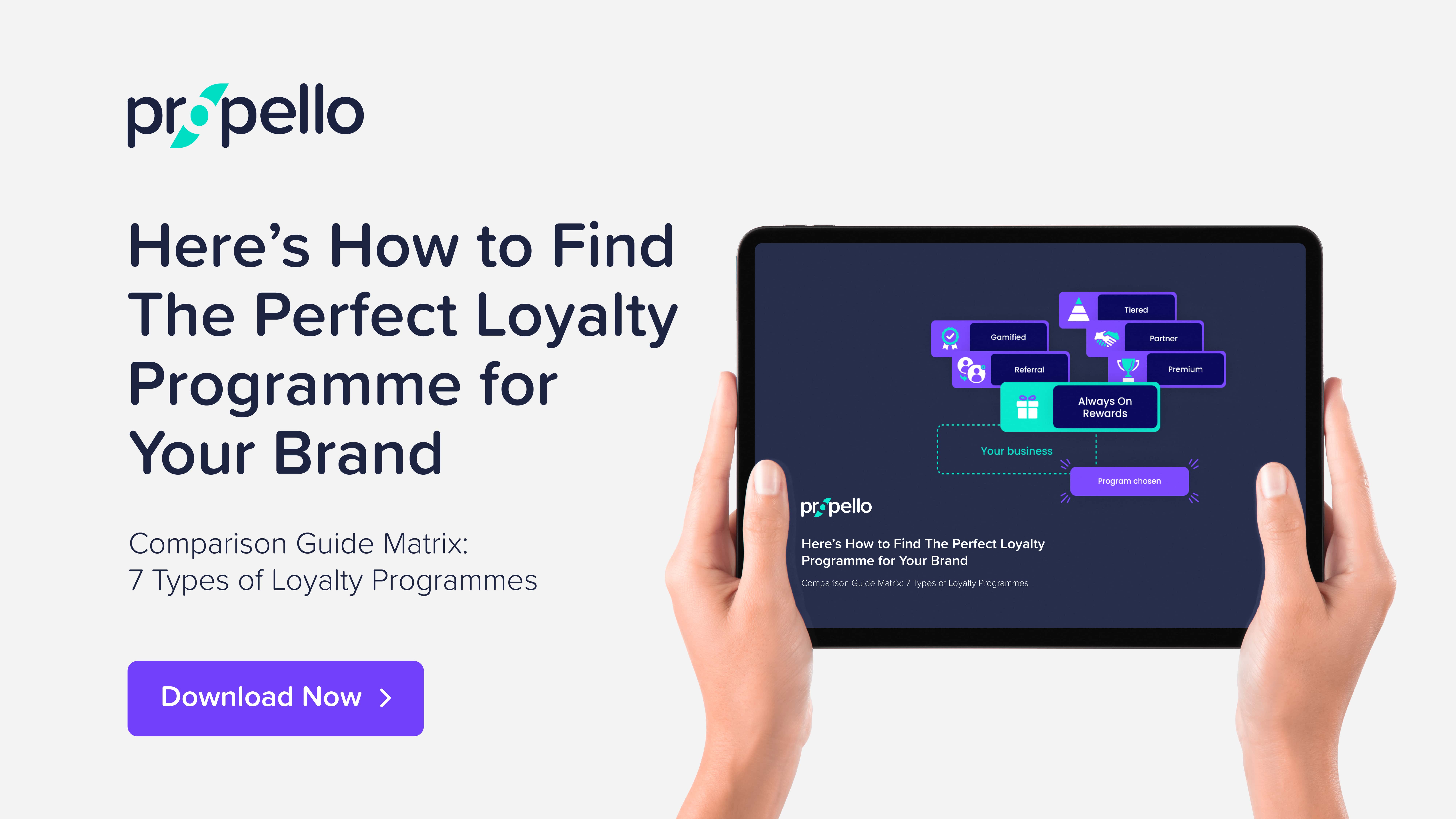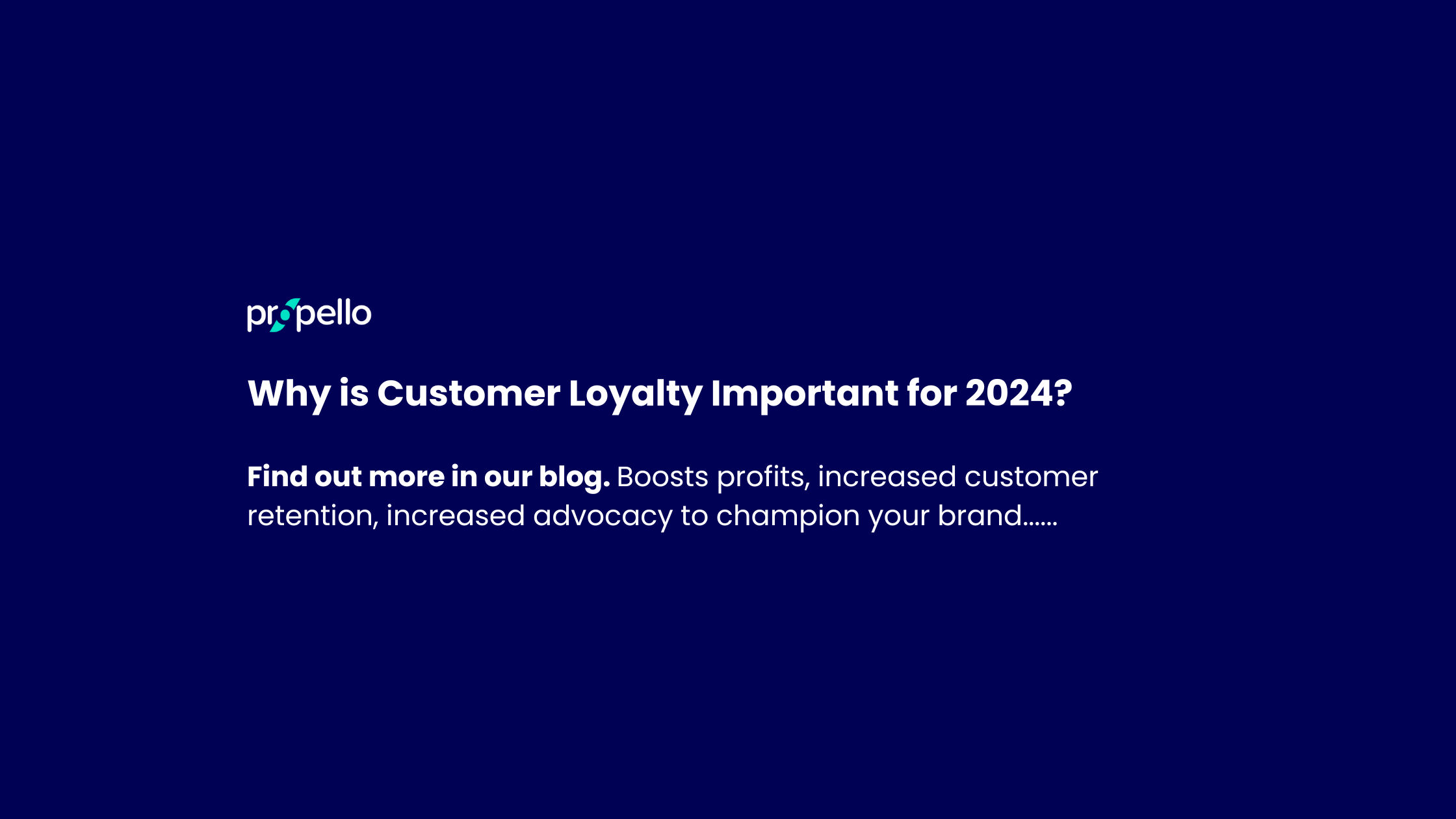Chances are, you already know why customer loyalty is important. After all, without consumers that are loyal to your brand, your business could be trapped in a constant acquisition loop. Not ideal when acquisition costs up to 25 times more than customer retention.
In this blog post we’ll be looking at:
Contents:
1) Awareness
2) Research
3) Purchase
4) Experience
5) Repeat
6) Refer
2) Loyal customers leave better reviews
3) Loyal customers purchase additional products
6) Loyal customers become brand advocates
What is Customer Loyalty?
Customer loyalty is a measure of how often and how long existing customers shop with you. Their willingness to participate in cross selling and how they engage with your social media channels.
In a nutshell, customer loyalty is emblematic of the ongoing relationship between customers and your business. Businesses maintain loyalty with great customer service and improving customer experiences.
Traditional brick and mortar establishments identify loyal customers as it’s just a case of remembering faces. For an enterprise predominantly online and digital, loyal customers are not so easily identifiable. Unless of course the business deploys a customer relationship management (CRM) system.
It stands to reason, then, that enterprises must find ways to foster customer loyalty and track it. Often this is via customer loyalty programmes or referral programmes. As these keep track of certain consumer behaviours, such as purchase decisions and word of mouth marketing.
Customer Experience is Key
Customer experience is a key fundamental of customer loyalty. Positive experiences with your brand leave a lasting impression. Positively impressed customers will be chomping at the bit to recommend your products and services to friends and family. So too will newly referred customers if you give them the same positive experience.
Attracting new customers and giving them good customer service earns their trust. A positive experience acts as a key and trust is the door it unlocks to perpetual customer loyalty.
Rare Consulting conducted research showing that 83% of customers claimed their loyalty started with trust of a brand.
If anything, the biggest takeaway of this statistic should be how aware customers are about loyalty. Gone are the days of simply supplying a great product or service. People want the full experience of going on a journey with your brand and to feel valued and nurtured.
6 Stages of Customer Loyalty
Mapping out the customer journey is a key part for any successful business. In fact, it’s essential, even with or without the aforementioned means of tracking loyalty metrics (e.g. CRM & CX).
A customer journey map allows you to visualise how customers may feel at various touch points. With this information at hand, better business decisions are more likely, making customers feel connected and valued.
1. Awareness
At this stage, an individual is aware of an opportunity or problem that they want to achieve or relieve using a product or service.
2. Research
The prospect consults family, friends, listens to general word-of-mouth, checks online reviews and other trusted sources. A brand with a positive image and happy customers naturally gains interest. There needs to be something in place to make the prospect immediately feel like you understand them. Whether it’s content, downloadable resources, a demo or consultation. n.
3. Purchase
Everyone knows the quality of products or services play a major part in customer satisfaction. These days however, 93% of customers reward excellent customer service with repeat purchases. First impressions are key to unlocking trust of increasingly sceptical consumers.
4. Experience
A fantastic experience coupled with a great product or service, is the perfect recipe for long lasting customer loyalty. At this stage, the customer should have experienced the full package…or thereabouts. Dependable and likeable brands move up The Brand Likeability Scale. Likeonomics is a cornerstone of trust building and proving your reputation.
5. Repeat
An overall positive experience should lead the converted customer into repeat business with you. You should consistently improve on building customer loyalty during this pivotal moment. You’ll need to build a long term loyalty programme to keep repeat customers engaged.
6. Refer
Look after existing customers because they are an in-road to target customers. They’ll more than likely share positive experiences with others at this stage. In fact, 72% of customers will tell six or more people if they have a satisfying experience.
Loyal customers also tend to be more agreeable. Leverage this, incentivising them to become your brand advocates, significantly increasing their customer lifetime value (clv). As they will bring in new revenue streams whilst continuing to shop with you.
Mapping out your customers’ journey is a great method of nurturing loyalty. Consistently providing top quality products or services with great experiences, inevitably leads to trust. Which as we've seen is central to successfully nurturing customer loyalty.
Therefore, nurture customer loyalty by implementing strategies that shift customers from prospects to advocacy. Use engagement strategies using rewards and benefits and aim to consistently deliver positive experiences using a customer service team.
Why is Customer Loyalty Important?
With all that said, we need solid numbers to demonstrate why customer loyalty is important for your business. After all, converting a prospect into an advocate requires a lot of time and resources. The ROI of customer loyalty is no more evident than in the following stats we’ve compiled. We've produced a more comprehensive list of the benefits of customer loyalty here
1) Reduces cost of service
Self-service has become a predominant method for end users to resolve issues amongst themselves. This is particularly useful if you provide a software or specialist product designed to accommodate a niche market.
Specific pain points tend to have budding online communities with users whose interests go beyond the workplace. This connects users with each other in forums, threads, and discussion boards, at the centre of which is your brand.
Recent studies and surveys have shown however, that an increasing amount of customers prefer self-service.
-
77% of customers react to self-service options more positively
-
60% of customers prefer using an FAQ before speaking to business representatives; including on chat or community forums
Implementing a rewards programme that incentivises existing customers to help newcomers, essentially provides:
- 24/7 support for your customers at no extra cost to you
- A space for end users to discuss your product and build an online community
- A dedicated forum of specialists in your domain that increases your brand authority
2) Loyal customers leave better reviews
Elated customers leave better reviews. This is particularly important when prospects are in the research phase of their own customer journey.
Positive reviews are the ace up the sleeve for any marketing strategy. As consumers care little for what marketers promise and much more about the experiences of fellow customers.
As customers, we all want to share great experiences. Which is why:
-
86% of consumers read testimonials before they make a purchase
-
In the same survey 85% of consumers think star rating is the deciding factor behind their purchase decisions
-
89% are “likely” or “very likely” to use a responsive business
So, what can we gather from this? Reviews are so much more than just a powerful form of social proof. They’re also a possible channel for you to directly connect with your audience. Responding to a happy customer compounds their emotions.
Acknowledging a complaint and fixing it can reverse a negative emotion entirely. Above all, connection humanises your brand and shows others that you care.
3.) Loyal customers purchase additional products
Firmly established and well-thought out touchpoint incentives, almost guarantee that trust will flourish between your business and customers. If you deliver on one product, customers should be able to trust you to deliver on others too.
Which is why customer loyalty is so important for brands with product ranges. Did you know that:
-
Loyal customers make up around 20% of any given customer base but generate 80% revenue!
-
You have a 5-20% chance of selling to new customers compared to 60-70% to an existing customer
-
Research suggests that existing customers are 50% more likely to try new products.
Successfully converting repeat customers is an excellent way of improving margins across the board. Of course, this is particularly useful if you offer a range of products or a tiered subscription service.
4) Boosts profits
Customer loyalty is the bedrock of any business. The foundations of which are as only strong as the trust your customers feel towards your brand. A consistent, positive experience that keeps on improving and rewarding loyalty is essential in boosting profits.
Customer loyalty programmes offer consumers a meaningful experience with brands. Eventually, this leads to loyalty and loyalty leads to value. Naturally, people want to protect and support what they value. Which is why:
-
63% of customers are willing to modify their spending with a brand to maximise loyalty rewards and benefits
-
Statistics show Loyalty Rewards Programmes increase spending in 54% of customer bases
-
Loyal customers spend on average 31% more than new customers
5) Customer retention
More companies prefer a balanced focus of customer acquisition and retention. Although, acquisition will realistically take precedence earlier on in most businesses. Eventually, a diligent and practical approach to customer loyalty would involve implementation of retention strategies.
However, acquisition alone could cost you up to 25 times more than retaining customers.
Hence the importance of investing time into producing a customer journey map. Design one that leverages strategies for each touchpoint for maximum retention effect.
-
Companies with loyalty schemes see an increase in customer retention of up to 78% (Bond)
-
An overwhelming 82% of companies agree that retention of customers costs less than acquisition of new customers
-
An increase of 5% in customer retention could yield a 25% increase in profits!
Customer loyalty significantly boosts the customer lifetime value over the long term.
6) Loyal customers become brand advocates
How do you feel when a loved one validates one of your recommendations?
Thinking of it from this perspective certainly helps understand the incentive behind brand advocacy. But the numbers below will demonstrate why it’s important to businesses!
-
Your potential organic reach with each advocate significantly improves. For example, 10 advocates = a reach of 6,000 as a result of social media platforms and referral programmes
-
90% of consumers will trust a brand recommended by a friend
Brand loyalty opens opportunities to invaluable marketing strategies for businesses. Word-of-mouth, social media and referral marketing are examples of social proof and ways to acquire new customers. Endorsements are hugely important for businesses that want to be the article.
Key takeaways
Customer loyalty is more than regular faces or repeat purchases; it’s about connection with consumers. Understanding that they want to align their own story with your brand. That in itself gives them something more than just a top quality product or service.
A business that implements marketing strategies tailored specifically to increase customer loyalty sets itself up for long lasting success. Hopefully now, armed with just some of the statistics and sources we’ve shared, you should be able to share in this success by:
-
Demonstrating the importance of customer loyalty to decision makers
-
Effectively switching to a balanced focus of customer acquisition and retention
-
Understanding what customer loyalty is and why it is important.




.png)